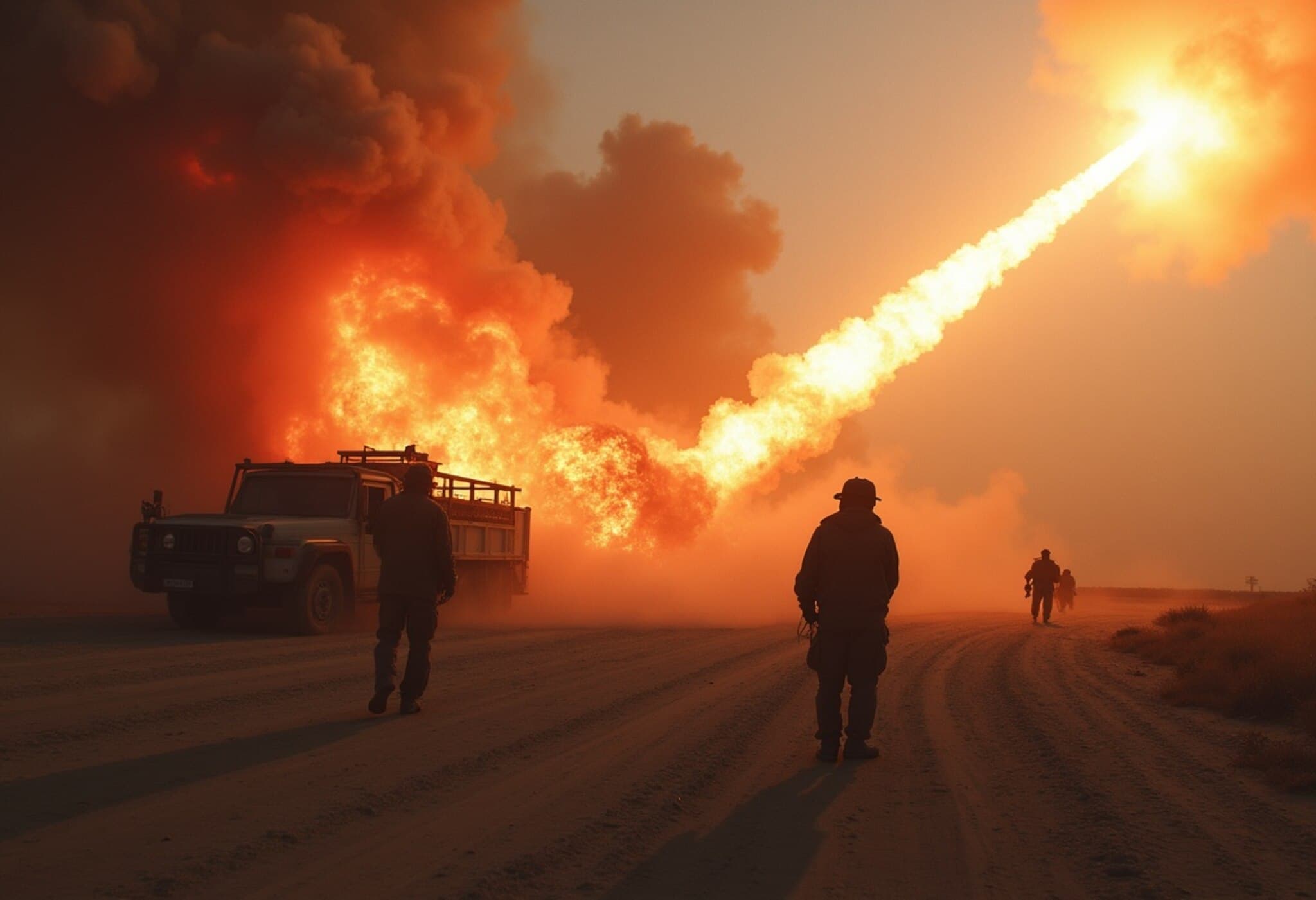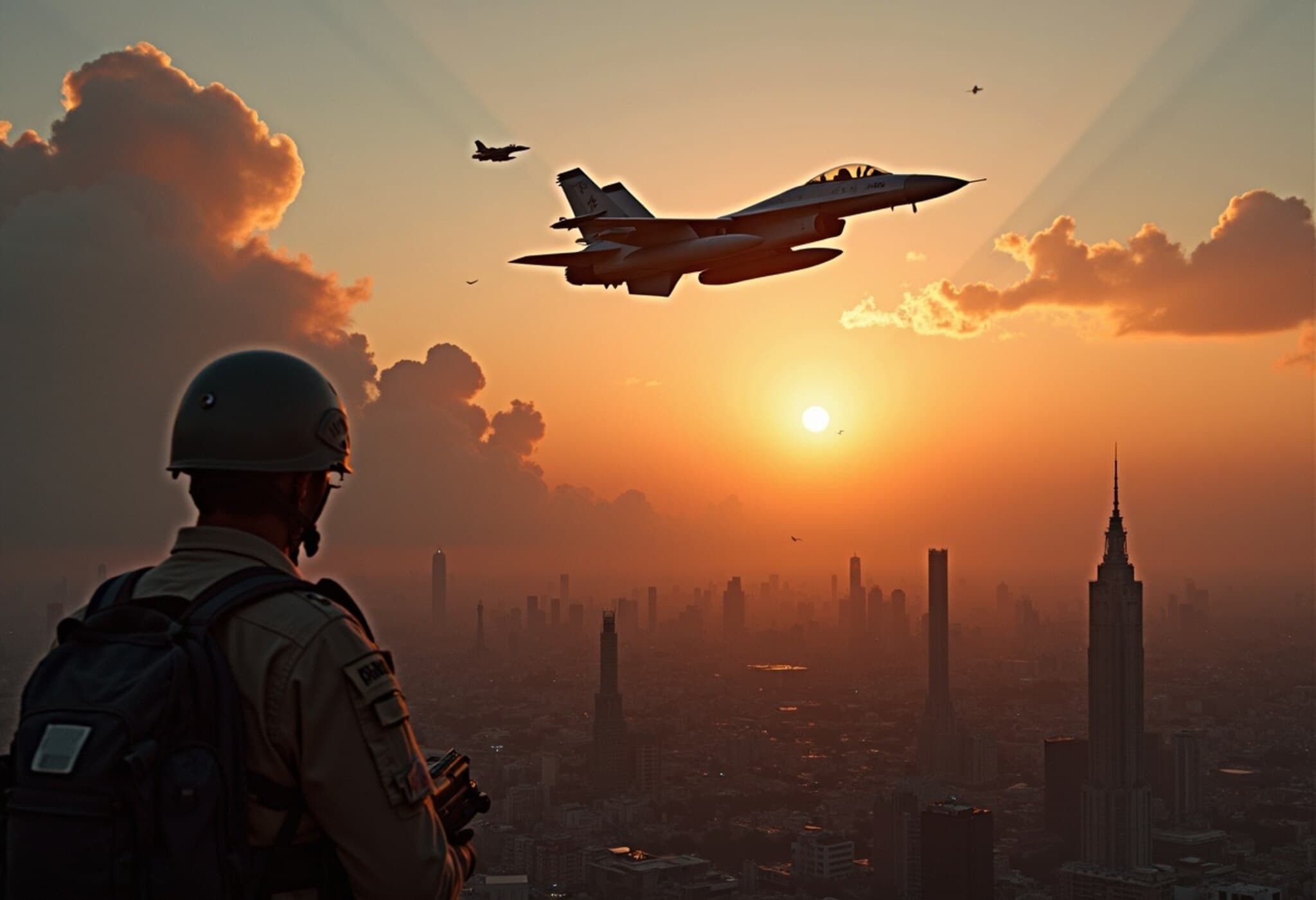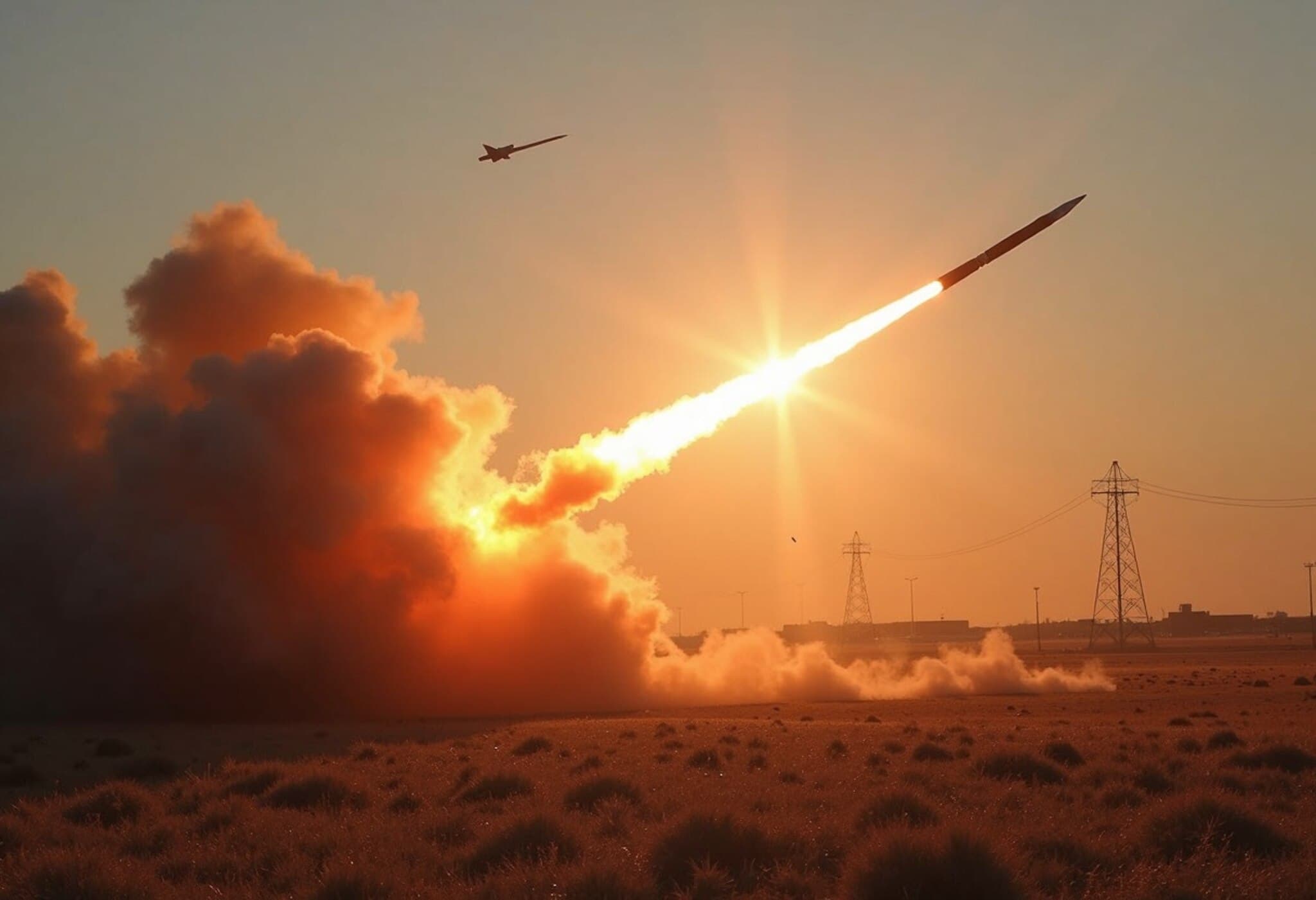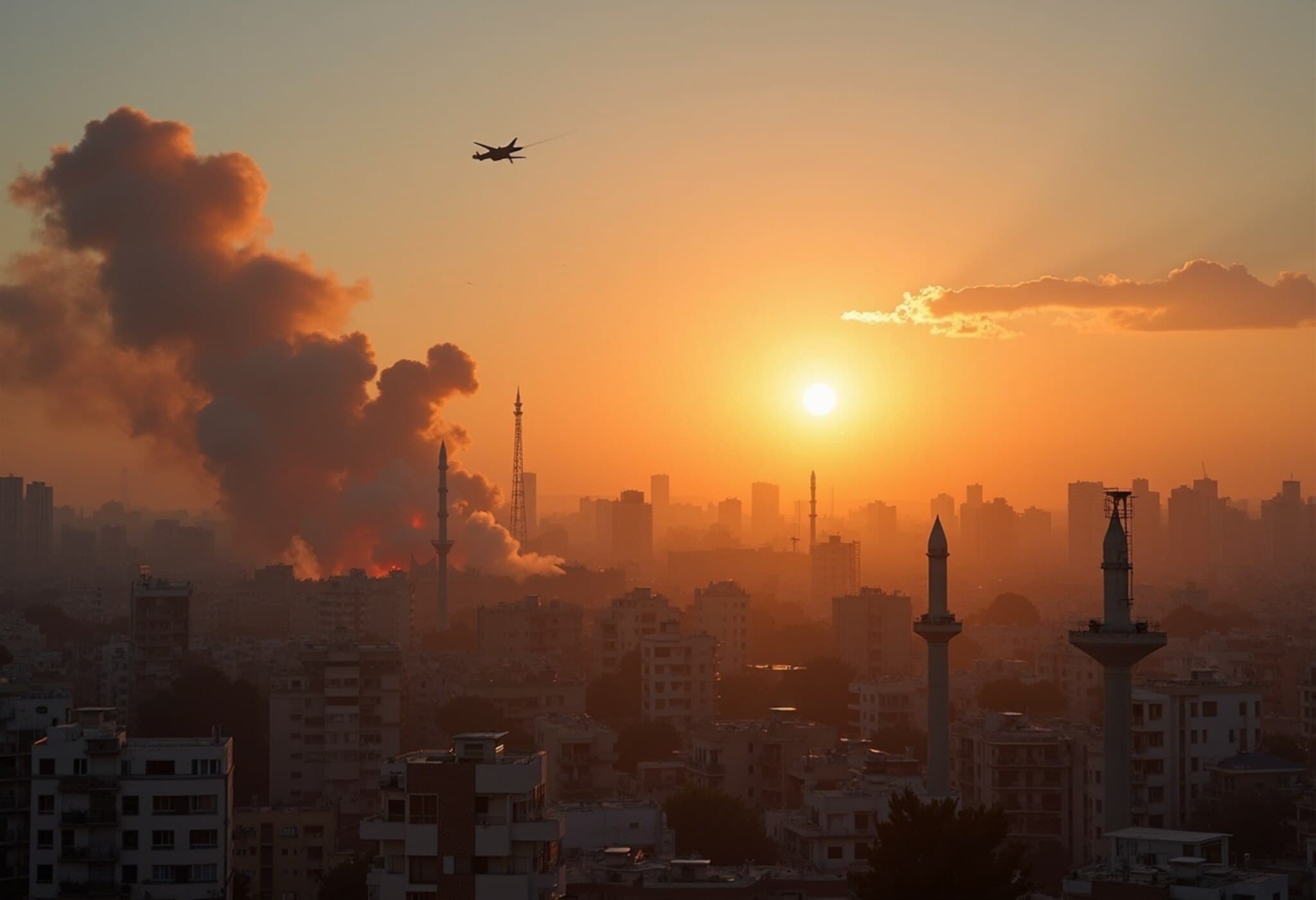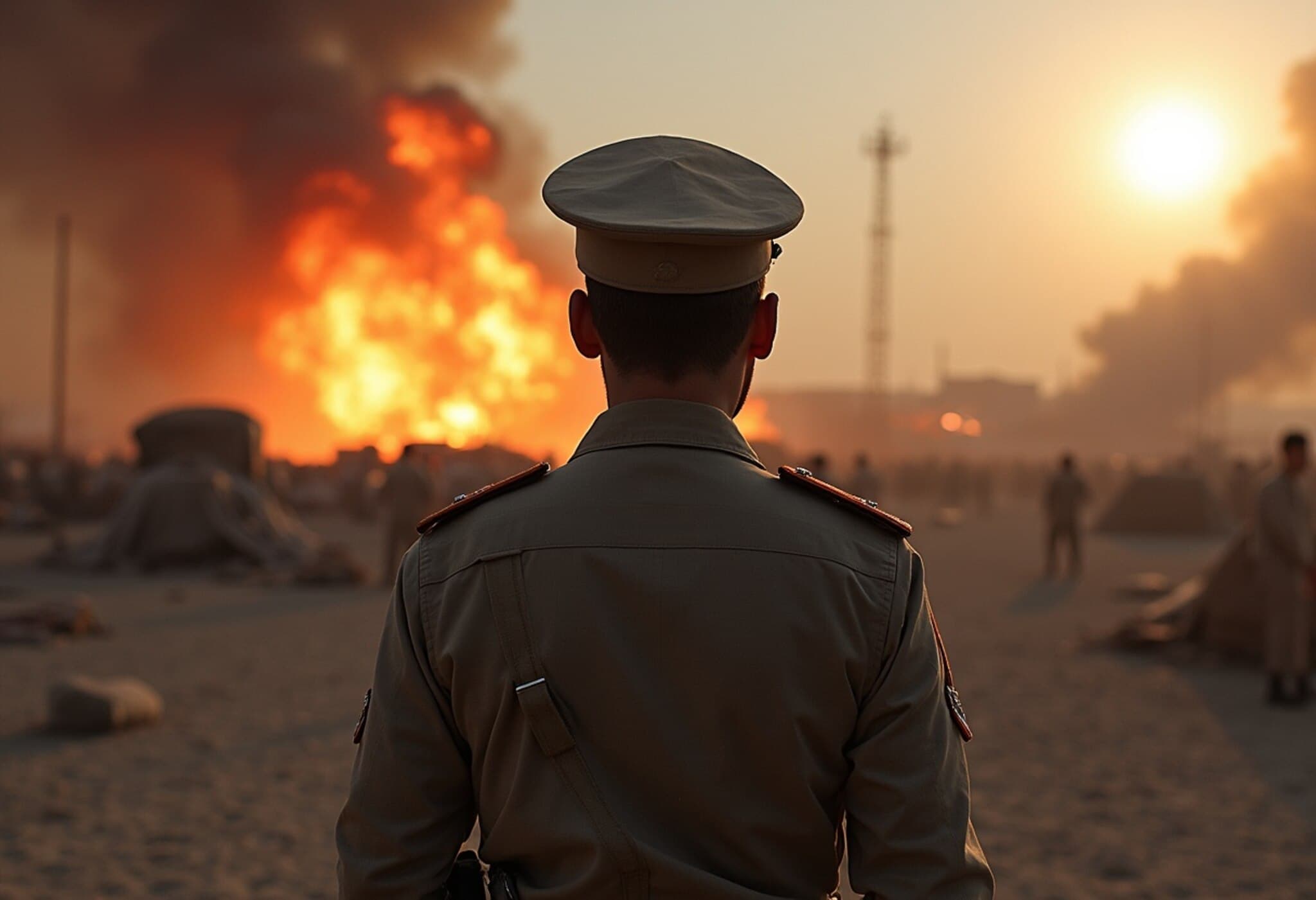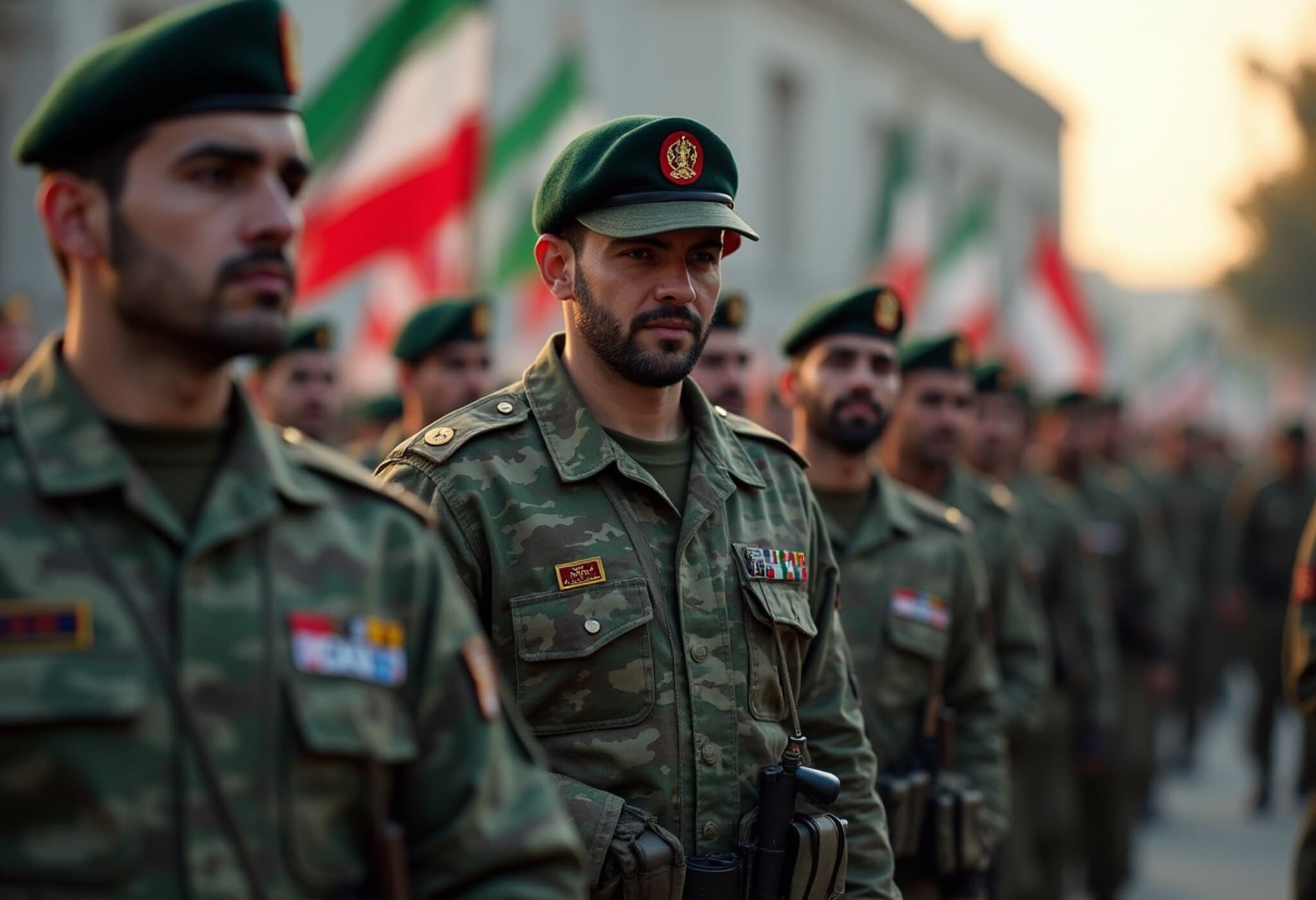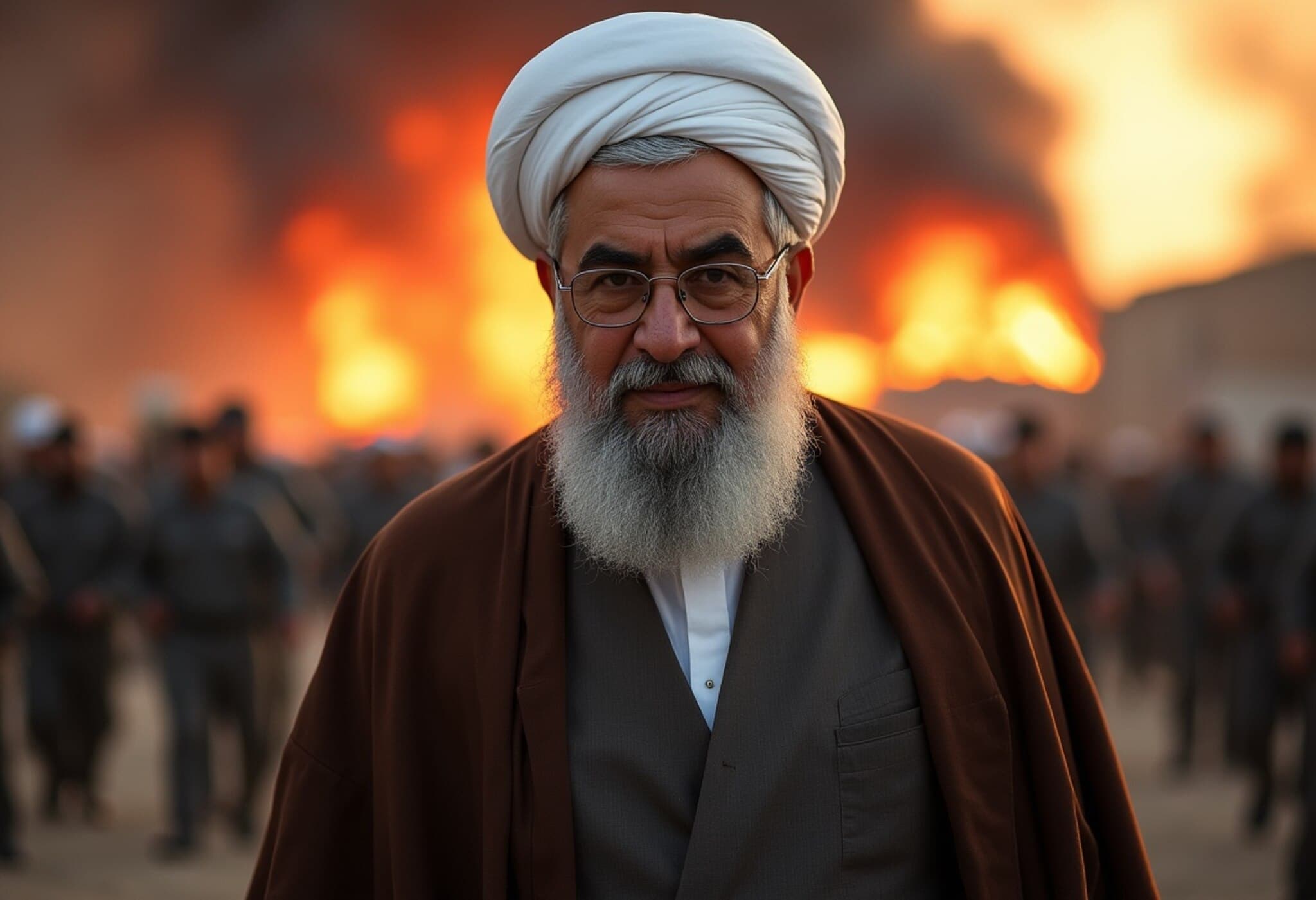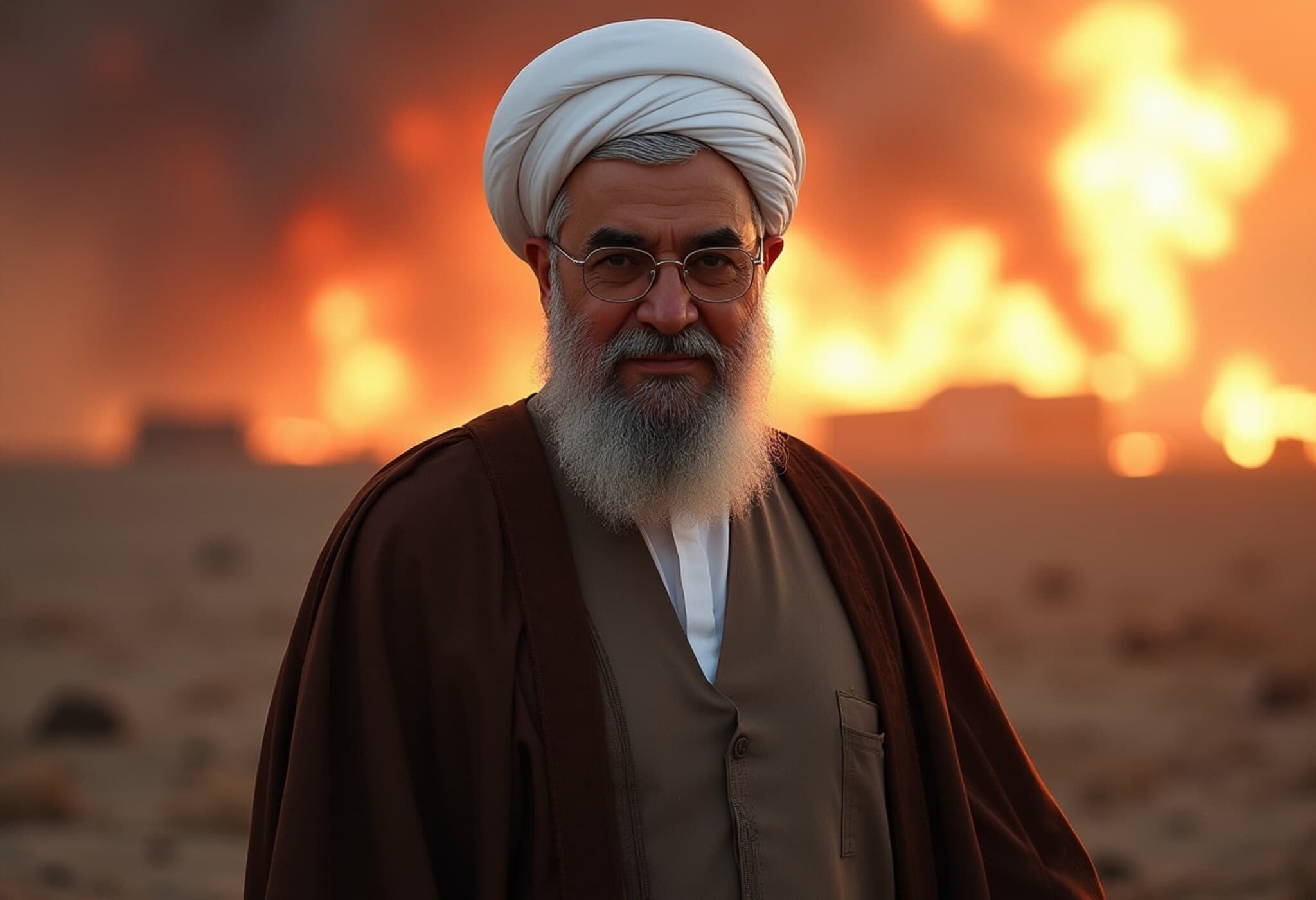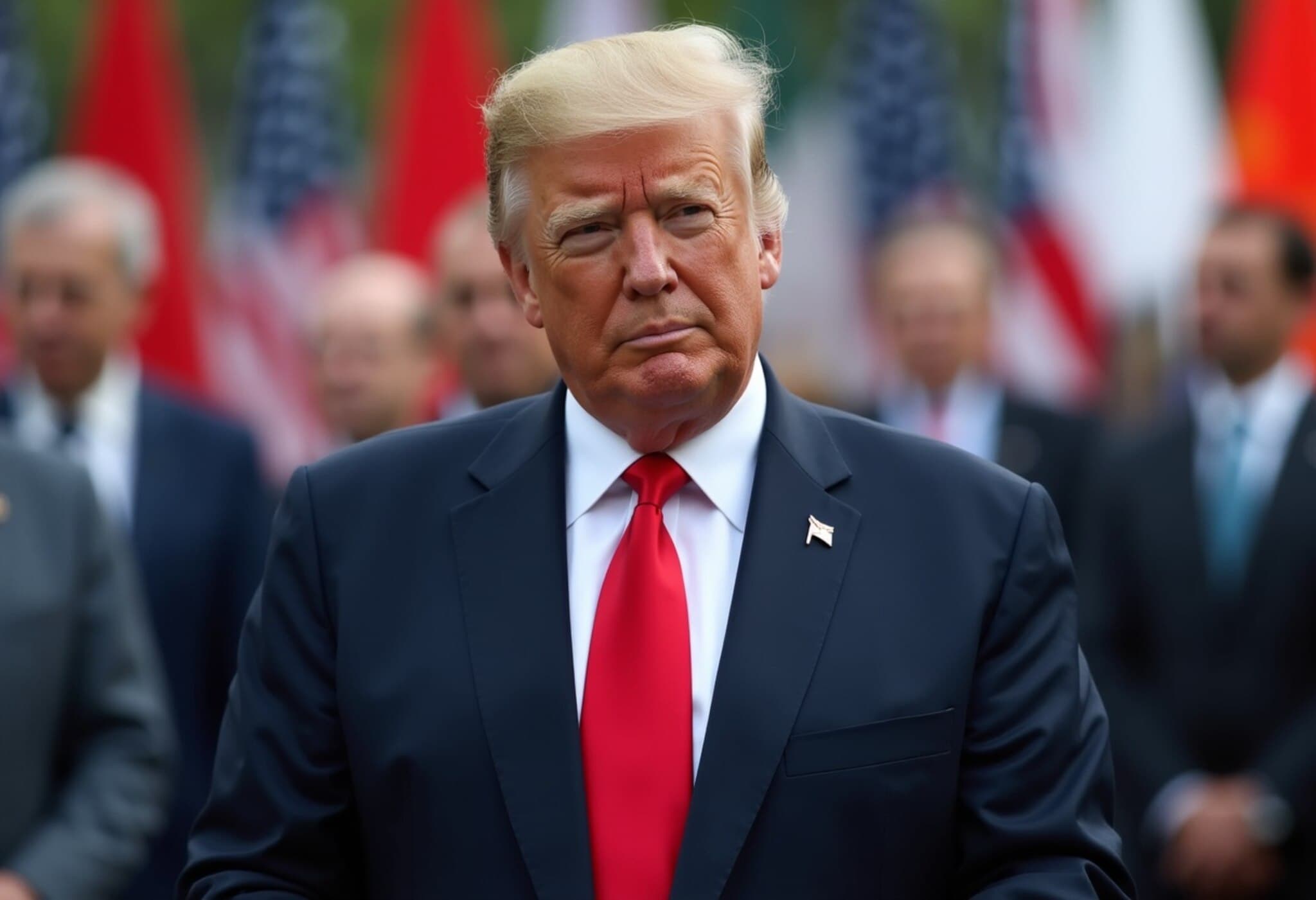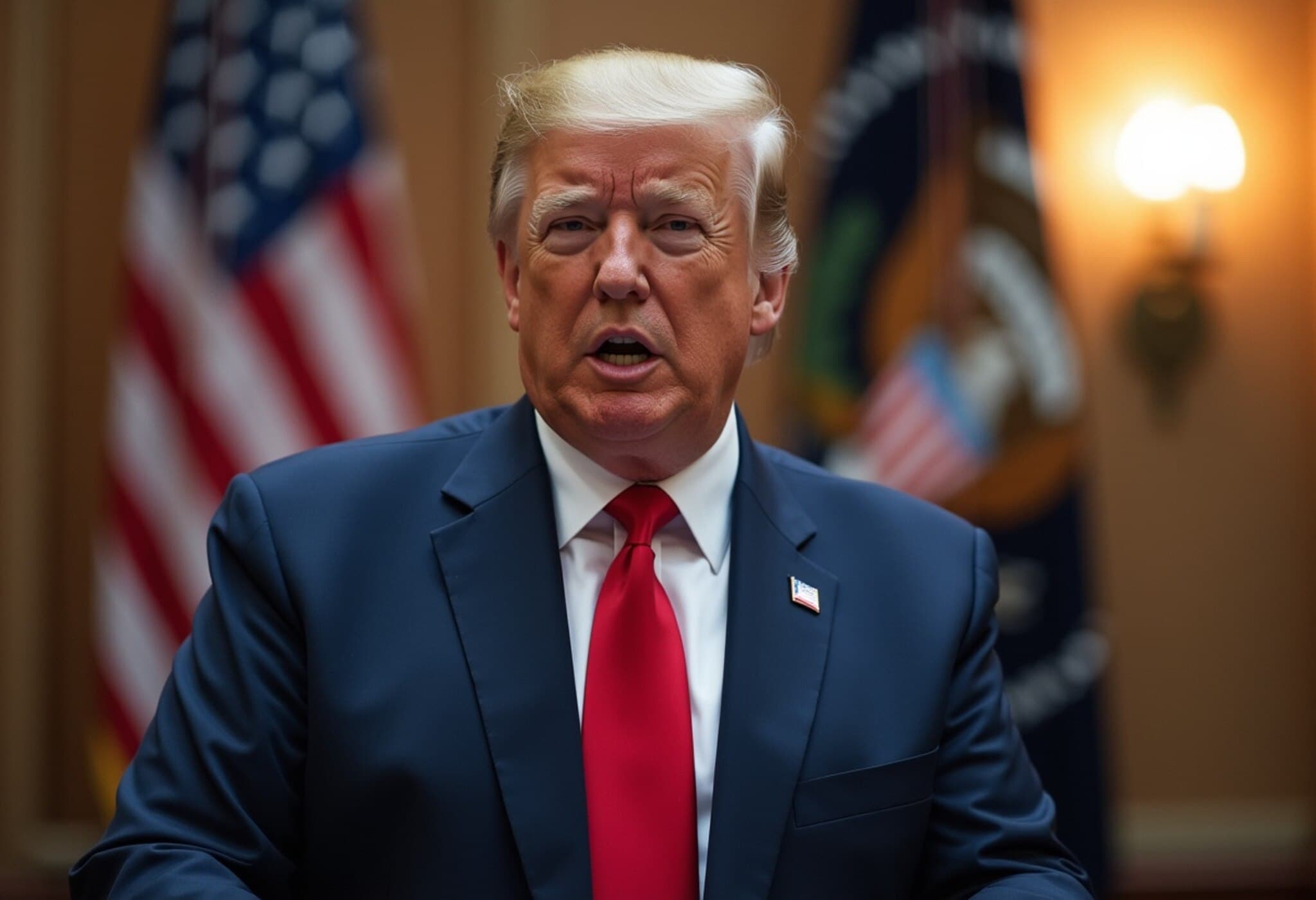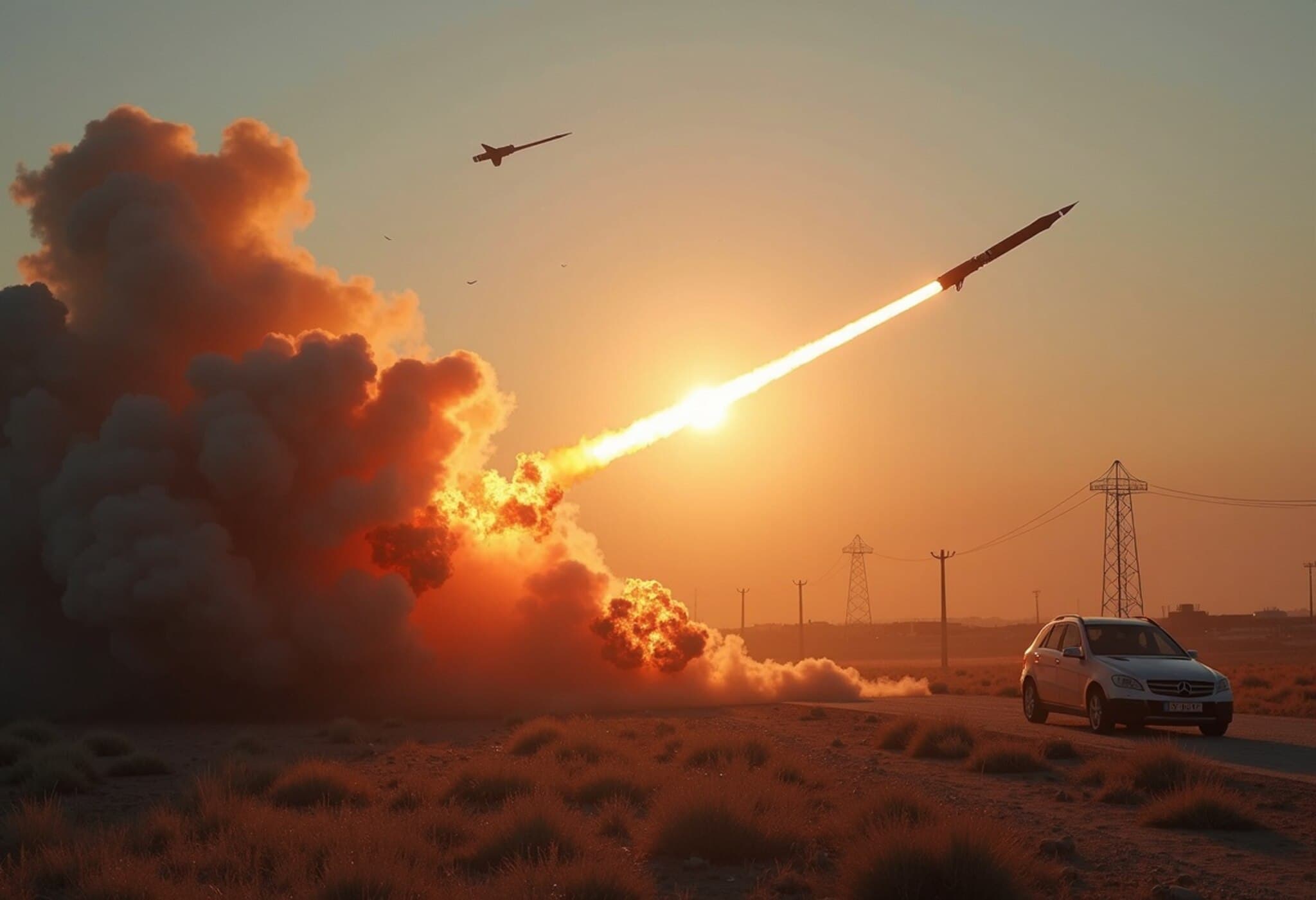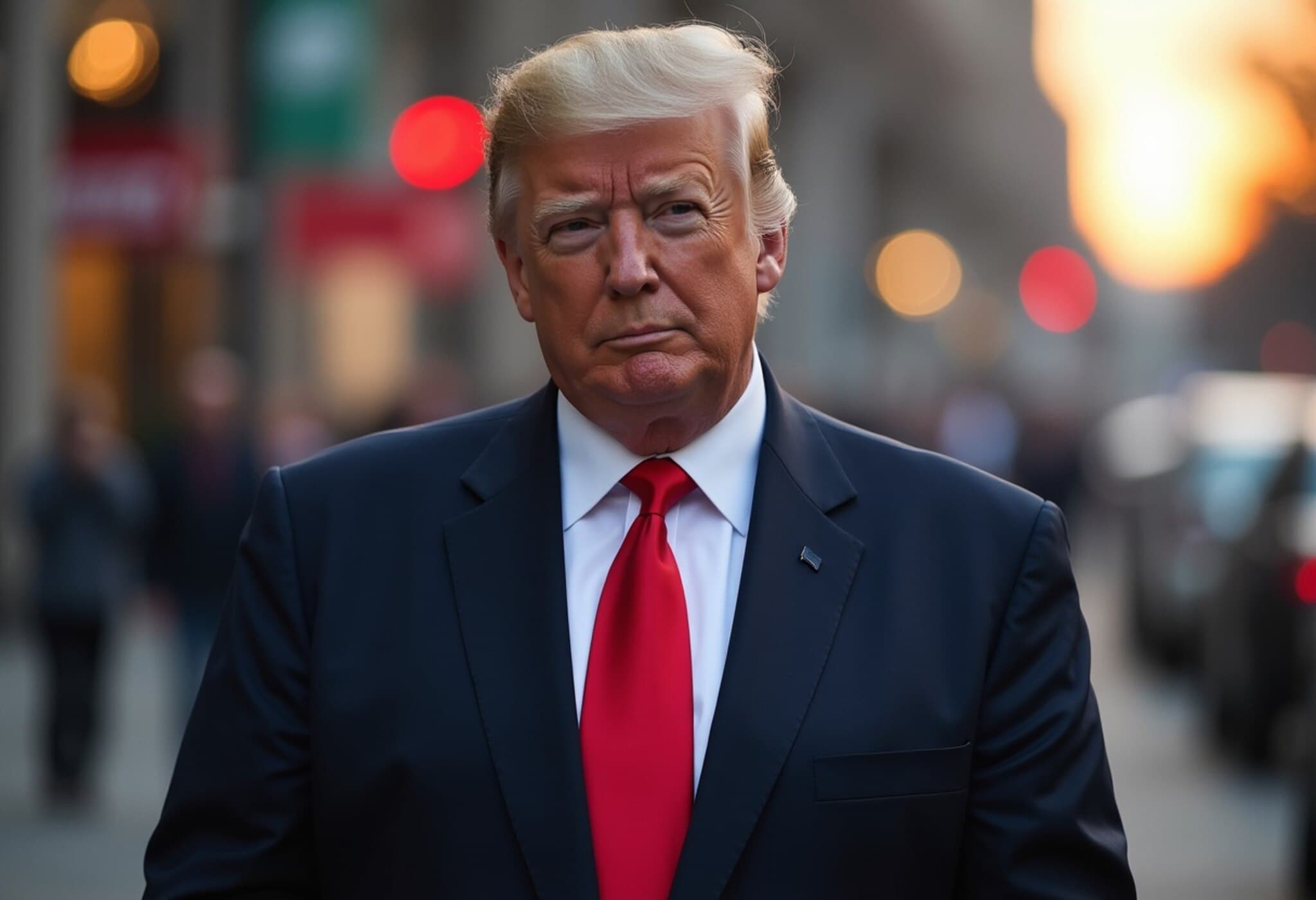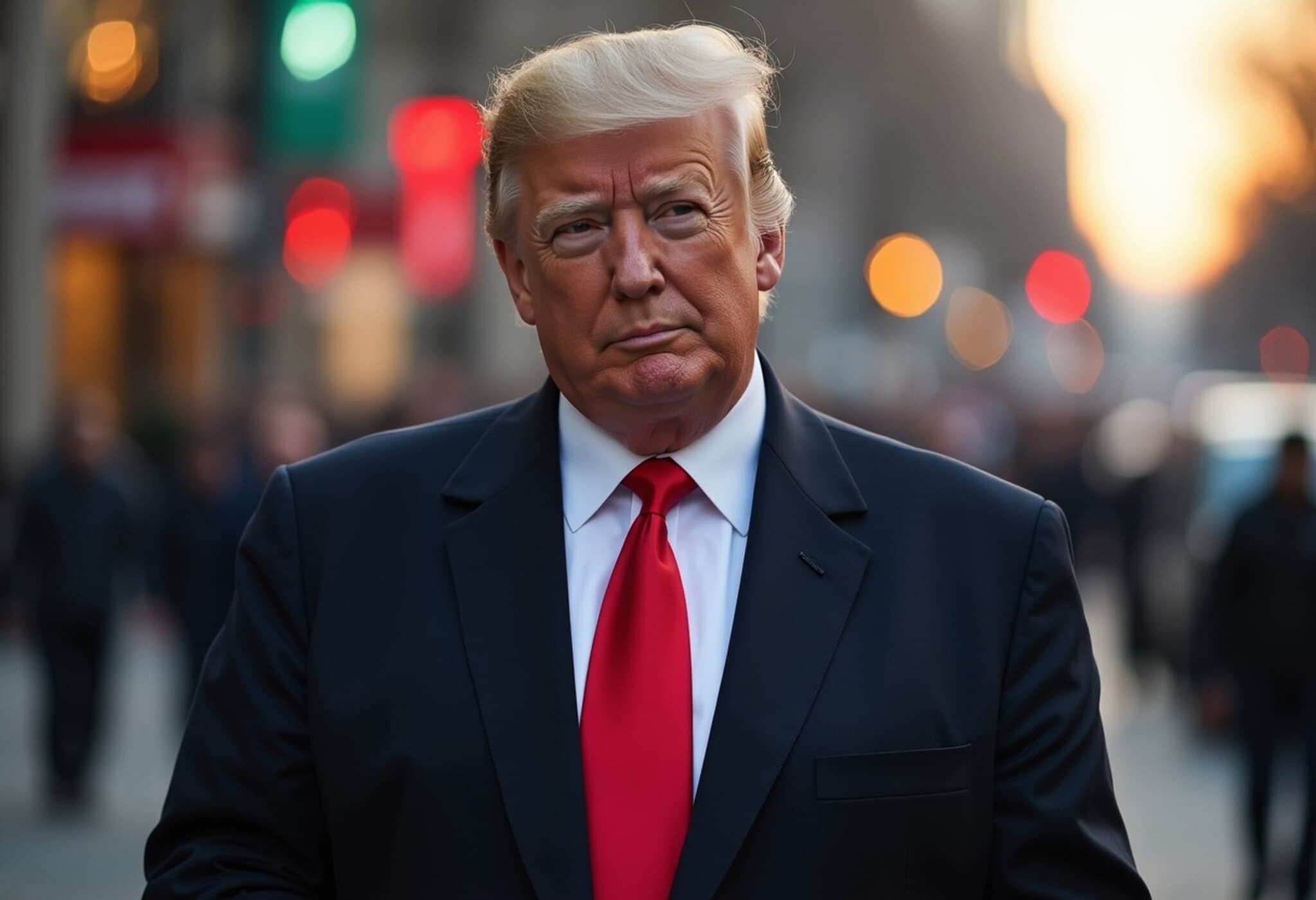Escalating Israel-Iran Conflict Sends Region Into Turmoil
For the fifth consecutive day, a fierce exchange of missiles between Israel and Iran has thrust the Middle East to the brink of a broader conflict. Overnight attacks and interceptions dominated the skies as both sides fired missiles, triggered air raid sirens, and initiated mass evacuations. The escalating violence has drawn global attention amid rising civilian casualties and widespread disruption.
Trump Shortens G7 Summit, Urges Tehran Evacuation
In an unexpected move, President Donald Trump abruptly cut short his participation in the G7 summit in Canada, warning civilians to "immediately evacuate Tehran." From Air Force One, he reiterated a hardline position, declaring emphatically that "IRAN CANNOT HAVE A NUCLEAR WEAPON." Despite the tough rhetoric, Trump paradoxically maintained that Iran remains open to a nuclear deal. Meanwhile, the U.S. National Security Council convened urgently as tensions soared.
Key Developments in the Ongoing Crisis
Indian Nationals Safely Evacuated from Tehran
India’s Ministry of External Affairs confirmed that through embassy efforts, all Indian students have been relocated out of Tehran amid safety concerns. Other Indian residents capable of self-evacuation were advised to move to safer locations outside the capital. Some Indian citizens also departed Iran via the Armenia border. Authorities continue to monitor the situation closely and stand ready to assist further as needed.
Iran Launches Another Missile Barrage on Israel
Israeli forces reported a fresh missile salvo from Iran targeting northern Israel, triggering air raid sirens and urgent shelter orders. Though Israel’s defense systems intercepted many incoming missiles, no immediate casualties or damage were reported from this latest attack. The U.S. reaffirmed its commitment to defend American interests in the region amid the growing hostilities.
G7 Summit Deeply Divided Over Response
The ongoing crisis has fractured the G7 summit, with President Trump refusing to endorse a joint statement calling for de-escalation. European leaders sought a united front endorsing Israel’s right to self-defense and condemning Iran’s nuclear aspirations, but Trump’s opposition prevented consensus. His early departure illustrated shifting U.S. foreign policy priorities amid the volatile situation.
Israel Issues Evacuation Orders as Tehran Residents Flee
Israel issued evacuation warnings to approximately 330,000 residents in central Tehran — encompassing strategic sites including Iran’s state television headquarters, police buildings, and several key hospitals. An exodus is underway, with many fleeing to other provinces amid fears of further strikes. Fuel shortages and rationing have emerged following attacks on Iran’s energy infrastructure, squeezing daily life even tighter.
China Urges Its Citizens to Leave Israel Immediately
In a striking advisory, China’s embassy in Israel urged nationals to depart the country at once, preferably through land borders into Jordan, so long as their safety can be assured. The embassy cited escalating violence, rising civilian casualties, and widespread damage to infrastructure as reasons for the urgent evacuation recommendation.
Airspace Closures Paralyze Middle East Travel
With the conflict intensifying, multiple airports across the Middle East have temporarily closed, disrupting regional and international flights. Iran’s airspace remains fully closed, Israel’s Ben Gurion Airport has shut indefinitely, and airports in Iraq and Lebanon have also ceased operations. The fallout leaves thousands stranded, grounding flights, disrupting crews, and inflicting significant operational challenges on airlines.
Israel Claims Full Control Over Tehran’s Airspace
Brigadier General Effie Defrin announced that Israel has achieved "full aerial superiority" over Tehran, marking a pivotal tactical milestone. Israeli strikes reportedly destroyed over 120 missile launchers and several Iranian F-14 jets. Additionally, key Quds Force command centers across the capital were targeted, delivering a severe blow to Iran’s military capabilities in the city.
Israeli Strikes Disrupt Iran's State Television Broadcast
In a dramatic episode, Israeli forces bombed Iran’s state TV building during a live broadcast, forcing reporters off air amid explosions. The building sustained damage from four bombs, causing injuries and forcing the network to shift to pre-recorded content. Israel asserted the facility was used to conceal military activities, making it a strategic target in ongoing operations.
Civilian Casualties Mount as Evacuations Continue
At least four civilians were reported dead in Israel’s Petah Tikva city following Iranian missile strikes. Simultaneously, evacuation orders intensified in Tehran, with embassies urging foreign nationals to relocate due to escalating threats. The rapidly deteriorating security environment underscores the heavy toll on civilians caught amid the crossfire.
Trump Maintains Ambivalence: Nuclear Deal Still on the Table?
Despite the violence, Trump indicated persisting interest in a diplomatic resolution. The U.S. Defense Secretary stated the administration remains prepared defensively but actively seeks a peace agreement. Trump suggested that Iran is still engaged in negotiations and hinted that a nuclear deal remains achievable, reflecting a complex, dual-natured approach.
Iran Responds with Massive Missile and Drone Assault
Iran’s retaliation intensified overnight with over 100 ballistic missiles launched, adding to more than 370 missiles fired since the conflict began. Additionally, drone strikes targeted the South Pars gas complex, a critical energy hub. Iranian officials vowed further retaliation, condemning Israeli airstrikes that have so far killed at least 224 people within Iran.
The Road Ahead
As missile exchanges ravage cities and diplomatic tensions soar, the Middle East faces an uncertain future. Massive evacuations, fractured alliances, and heavy military engagements signal a conflict that could easily spiral into broader regional warfare. The world watches closely as efforts for diplomacy hang in the balance amid relentless violence.

